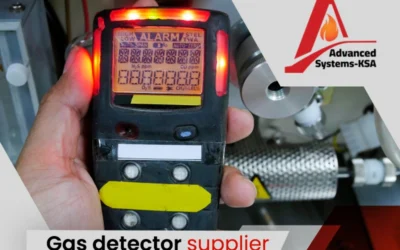In firefighting solutions, where Advanced Systems leads with cutting-edge technologies, the conventional fire alarm panel stands out as a crucial component. This robust and reliable device is designed to detect and alert occupants about the presence of fire, playing a pivotal role in safeguarding lives and property.
In this article, we will explore the function and benefits of conventional fire alarm panels, shedding light on their significance in the broader context of fire safety.
Understanding Conventional Fire Alarm Panels
Conventional fire alarm panels are central control units that coordinate and monitor building fire detection and notification devices. These panels include a control panel, detection devices (smoke and heat detectors), and notification appliances (such as strobe lights and sirens).
The control panel acts as the system’s brain, processing incoming signals from the detection devices and activating the notification appliances when necessary. The components are interconnected through wiring and circuits, allowing seamless communication within the fire alarm system.
How Conventional Fire Alarm Panels Work
Conventional fire alarm panels operate in a specific way. The building is divided into zones, each connected to the board through a series of detectors and devices. In case of fire, the panel receives signals from the affected zone, pinpointing the location of the potential threat. This information is then translated into audible and visible alarms, alerting occupants and emergency responders.
Advantages of Conventional Fire Alarm Panels
Conventional fire alarm panels offer several advantages that make them a popular choice for fire safety systems, as follows:
- They are cost-effective, making them suitable for small to medium-sized buildings with budget constraints.
- Their simplicity and ease of use make them accessible to many users, including building owners, managers, and occupants.
- The system allows for scalability and customization, enabling expansion or modifications to align with the evolving needs of a building.
- Their dependability is enhanced by incorporating advanced mechanisms that reduce false alarms and improve early detection capabilities.
These features minimize disruptions caused by false alarms and enhance overall fire safety.
Maintenance and Testing
Regular maintenance and testing are essential to ensure the optimal functioning of conventional fire alarm panels. Adhering to local fire safety regulations and standards is crucial in this regard. It is recommended that qualified technicians or fire safety professionals conduct routine inspections, tests, and repairs to guarantee the system’s reliability and efficacy.
Advanced Systems stands out in pursuing comprehensive fire safety solutions by offering conventional fire alarm panels, a reliable and practical choice. These panels play a vital role in safeguarding lives and property within buildings, owing to their functionality, cost-effectiveness, and unwavering reliability, making them a valuable asset for comprehensive fire safety measures.
read also:
Firefighting Tools And Equipments






